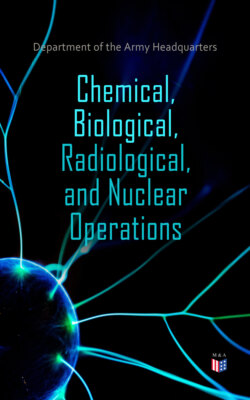Читать книгу Chemical, Biological, Radiological, and Nuclear Operations - Department of the Army Headquarters - Страница 16
На сайте Литреса книга снята с продажи.
1-10. Foreword.
ОглавлениеTable of Contents
a. While it is improbable that a knowledge of psychology will make any change in the fundamentals of the conduct of small wars, it will, however, lead to a more intelligent application of the principles which we now follow more or less unconsciously through custom established by our predecessors.
b. Psychology has always played an important part in war. This knowledge was important in ancient wars of masses; it becomes more so on the modern battlefield, with widely dispersed forces and the complexity of many local operations by small groups, or even individuals, making up the sum total of the operation. In former times the mass of enemy troops, like our own, was visible to and under the immediate control of its leaders-Now troops are dispersed in battle and not readily visible, and we must understand the psychology of the individual, who operates beyond the direct control of his superiors.
c. This difficulty of immediate control and personal influence is even more pronounced and important in small wars, on account of the decentralized nature of these operations. This fact is further emphasized because in the small wars we are dealing not only with our own forces, but also with the civil population which frequently contains elements of doubtful or antagonistic sentiments. The very nature of our own policy and attitude toward the opposing forces and normal contacts with them enable the personnel of our Force to secure material advantages through the knowledge and application of psychological principles.
d. This knowledge does not come naturally to the average individual. A study of men and human nature supplemented by a thorough knowledge of psychology should enable those faced with concrete situations of this type to avoid the ordinary mistakes. The application of the principles of psychology in small wars is quite different from their normal application in major warfare or even in troop leadership. The aim is not to develop a belligerent spirit in our men but rather one of caution and steadiness. Instead of employing force, one strives to accomplish the purpose by diplomacy. A Force Commander who gains his objective in a small war without firing a shot has attained far greater success than one who resorted to the use of arms. While endeavoring to avoid the infliction of physical harm to any native, there is always the necessity of preventing, as far as possible, any casualties among our own troops.
e. This is the policy with which our troops are indoctrinated; a policy which governs throughout the period of intervention and finds exception only in those situations where a resort to arms and the exercise of a belligerent spirit are necessary. This mixture of combined peaceful and warlike temperament, where adapted to any single operation, demands an application of psychology beyond the requirements of regular warfare. Our troops at the same time are dealing with a strange people whose racial origin, and whose social, political, physical and mental characteristics may be different from any before encountered.
f. The motive in small wars is not material destruction. It is usually a project dealing with the social, economic, and political development of the people. It is of primary importance that the fullest benefit be derived from the psychological aspects of the situation. That implies a serious study of the people, their racial, political, religious, and mental development. By analysis and study the reasons for the existing emergency may be deduced; the most practical method of solving the problem is to understand the possible approaches thereto and the repercussion to be expected from any actions which may be contemplated. By this study and the ability to apply correct psychological doctrine, many pitfalls may be avoided and the success of the undertaking assured.
g. The great importance of psychology in small wars must be appreciated. It is a field of unlimited extent and possibilities, to which much time and study should be devoted. It cannot be stated in rules and learned like mathematics. Human reactions cannot be reduced to an exact science, but there are certain principles which should guide our conduct. These principles are deduced by studying the history of the people and are mastered only by experience in their practical application.
